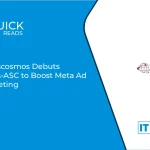In a significant move for Japan’s health-tech field, AITRICS, a medical AI startup from Seoul, established its first subsidiary in Chuo-ku, Tokyo, in March 2025.
Supported by the JETRO Invest Japan Business Support Center (IBSC), this move shows Japan’s increasing interest in advanced AI healthcare solutions, particularly in predictive diagnostics.
AITRICSの活動:臨床判断支援のためのAI
医師であるキム・クァンジュン博士によって2016年に設立されたAITRICSは、電子カルテデータのリアルタイム分析による臨床意思決定支援システムを専門としています。主な製品は以下の通り:
AITRICS-VCは、敗血症や心停止などの重要な患者イベントを予測します。これにより、病院は他の方法よりも早く発見し、対応することができます。.
こちらもお読みください: エミュレートと富士フイルム、ブレインチップR1を発表
V.DocはAIを搭載した遠隔医療アシスタントで、バーチャル診察の精度とスピードを向上させます。.
Having already deployed its technologies in over 150 institutions across South Korea, AITRICS is now targeting Japan – a market with an urgent need for digital transformation in healthcare, especially predictive care and automation.
JETRO’s Role in Bridging Innovation and Market Entry
ジェトロはこの事業拡大において重要な促進役を果たしました。インベスト・ジャパン・ビジネス・サポート・センターは、日本の医療関係者、機器メーカー、潜在的な協力者との会合の手配でAITRICSを支援しました。.
IBSC provides support to foreign companies through its “one-stop” platform in terms of regulatory requirements, locations, and even local partners, significantly lowering the entry barrier into Japan’s complex but lucrative life sciences market.
なぜ日本?AITRICSの戦略的推進力
AITRICSにとって、日本はいくつかの構造的・人口統計学的要因から魅力的な目的地となっています:
高齢化:日本は世界でも有数の高齢国です。そのため、医療システムに負担がかかっています。予測AIのような効率的でスケーラブルなソリューションが必要です。.
労働力不足: 病院はスタッフが足りないというプレッシャーに直面しています。このような状況において、早期警告を提供したり、医療スタッフをサポートしたりするAIツールは非常に価値があります。.
規制の勢い:日本では、デジタルとAIを活用したヘルスイノベーションの推進が加速しています。PMDAの承認により、AITRICSは臨床ワークフローにより緊密に統合できるようになります。ジェトロの支援は、医療機器やヘルスケア企業とのコネクションを可能にすることで、このプロセスを加速させます。.
デジタルトランスフォーメーション:日本の官民は、AIを中核に据えたヘルスケアのデジタルトランスフォーメーションを強力に推進しています。.
日本のハイテク・健康産業への示唆
This development may create a ripple effect in Japan’s tech and healthcare sectors.
イノベーションの加速: AITRICS will drive advances in medical AI. Local startups and large healthcare providers will use or work together to create predictive AI systems. These systems will help advance Japan’s digital health maturity.
国境を越えたコラボレーション: AITRICSが橋渡し役これにより、韓国やアジアのヘルステック企業の日本進出が促進される可能性があります。これにより、国境を越えたイノベーション・エコシステムが強化されます。.
投資マグネット:AITRICSの日本の病院への統合が成功すれば、日本のAI-ヘルス分野への外国直接投資の誘致が進む可能性があります。ジェトロの報告書によると、日本は外国からの投資に対する関心を持続的に集めています。.
予測AIは、病院での在院日数の短縮、有害事象の回避、リソースの適切な配分に役立ちます。.
今後の課題
期待とは裏腹に、いくつかのリスクも残っています:
規制上のハードル:医療用AI機器の多くはPMDAの承認が必要です。特に予測システムはそうです。.
データプライバシー:日本の個人情報保護法に従い、機密性の高い患者データを取り扱います。これには慎重な設計と強力なガバナンスが必要です。.
臨床採用:日本人集団での明確な検証がなければ、病院はAIの予測を使うことに抵抗を示すかもしれません。ROIの証明と、最も重要な臨床効果の証明が必要です。.
コンペティション:日本国内の新興企業と大手多国籍企業がAIヘルスケアで競争。競争が激化しています。.
より大きなビジネスインパクト
From a business perspective, AITRICS’ roadmap to Japan provides multiple lessons and opportunities:
グローバルプレーヤーは内向きに:この動きは、世界のAIヘルス企業でさえ、日本を単なる市場としてだけでなく、共同開発やローカライゼーションのための長期的なパートナーとして見ているという事実を示しています。.
政策の勝利が重要:ジェトロの支援は、官民が協力することで、海外のハイテク企業の参入障壁を下げ、日本のイノベーション・ハブとしての地位をさらに強固なものにすることができることを示しています。.
人材とノウハウの交流:AITRICSが地元で成長する一方で、AI医療に取り組む日本のエンジニアやデータサイエンティストからなる人材交流が行われ、おそらく韓国で知識の逆移転が行われるでしょう。.
結論
Japan’s medical AI scene is advancing with AITRICS‘ new office in Tokyo. This opens a key chapter in the company’s growth in the region. JETRO has skillfully planned this move to meet a critical healthcare need in Japan. This move can speed up digital transformation in clinics. It will boost cross-border innovation and draw more international investment to Japan’s health-tech sector.
Japan faces challenges with its aging population and medical efficiency. AITRICS’ predictive AI tools can help shape the future of healthcare in the country. This development can greatly affect Japan’s technology ecosystem.








